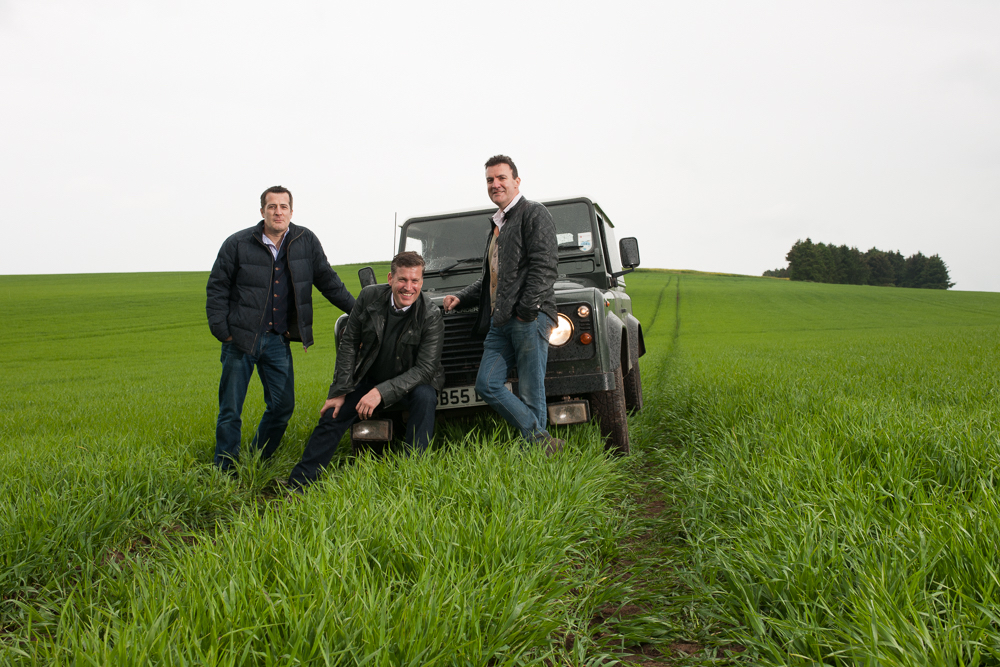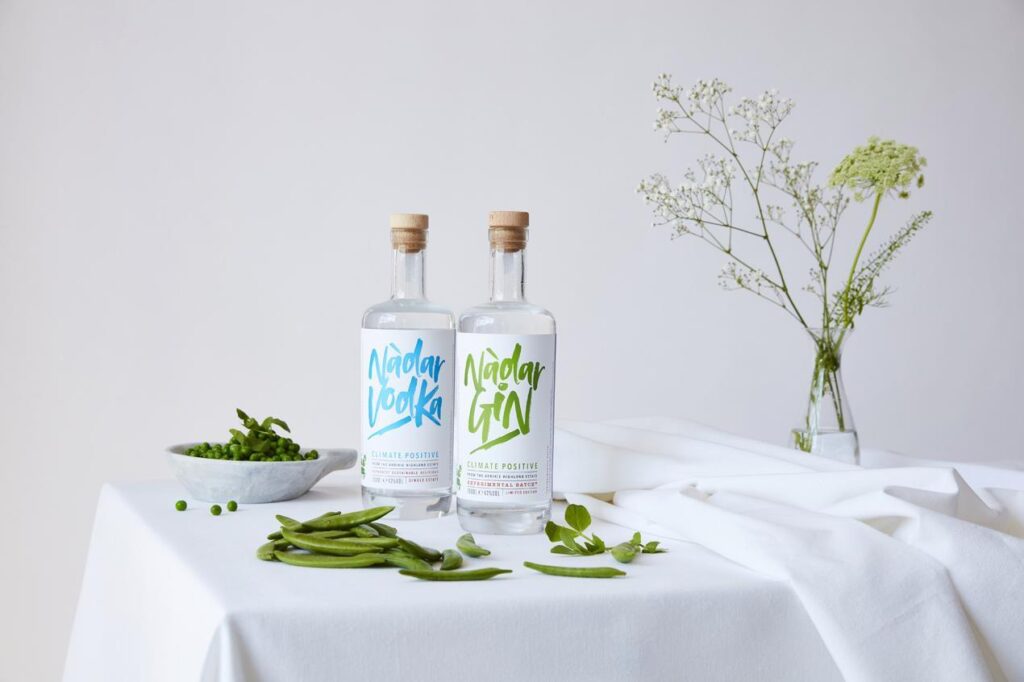Pea-based gin a “game-changer” for climate-friendly drinks
2nd June 2023
Growers at a farm in Angus have developed an award-winning gin which reduces reliance on synthetic fertilisers and is grown, harvested, and distilled on site.
Pea-based gin Nàdar has been described as a “game-changer”, saving 1.54kg of CO2e per bottle.
Working with scientists at Abertay University and the James Hutton Institute, the Arbikie Highland Estate in Angus, Scotland, explored the distilling potential of less conventional crops and those that are too readily rejected by supermarkets – such as potatoes.
They looked at leguminous crops, particularly peas, as they can fix their own nitrogen, reducing reliance on synthetic fertiliser and therefore environmental impact.
Nàdar, which means ‘nature’ in Gaelic, was created by master distiller and scientist Dr Kirsty Black, in close collaboration with agroecologist Dr Pietro Iannetta, from the James Hutton Institute. It is now being sold worldwide.
Field to bottle
The Stirling family, who own the Arbikie estate, have been farming for over 400 years. Brothers Iain, David and John Stirling, who currently run the estate, added a distillery to their operation nearly a decade ago, and have since strived to develop a ‘field to bottle’ model – growing, harvesting and distilling everything on-site.
Iain Stirling said the drinks industry is under increasing pressure to improve its sustainability record and he hopes Arbikie’s approach could be replicated elsewhere.
“Customers are increasingly demanding more from their produce in terms of sustainability, and we need to be willing to listen to the market and respond,” he explained. “We have an amazing farming industry which is very adaptable and innovative and could supply more in that space if distillers were to ask for it.”
As well as reducing their fertiliser use, the pea gin also offers an opportunity to deliver home-grown sustainable protein by using spent products from the distilling process for animal feed.
The family has always grown barley for the whisky industry, but recently started growing heritage barleys that were grown by their father, Alex Stirling, to celebrate his long farming career and legacy.

Owners of Arbikie Highland Estate, brothers Iain, David and John Stirling.
Science is key
Iain believes science is key to helping the industry move in a sustainable direction more quickly and the estate has an ongoing collaboration with universities and the James Hutton Institute.
The estate is working with high profile bars, retailers and restaurants including Atlas Bar in Singapore, Wholefoods in the US and the Hilton. “It is challenging to supply them as a relatively new business but that is where innovation and creating things that don’t exist elsewhere, really helps,” Iain continued.
“By working with us, we are offering solutions to their want for greater sustainability and playing our part in decarbonising the drinks supply chain.”
The Stirlings’ story is part of a series of case studies, developed as part of the 2023 RHASS Presidential Initiative (PI), exploring the science behind food and drink production.
George Taylor of the RHASS Presidential Initiative commented: “Another excellent example of “The Science behind Food and Drink,” where three local organisations in Arbikie, JHI and Abertay University have collaborated and used individual and collective expertise to deliver ground-breaking and world leading results.
“Alex Stirling would be extremely proud of what his sons Iain, David and John have achieved.”
There will be a showcase of the RHASS Presidents’ Initiative case studies at this year’s Royal Highland Show – creating a legacy of materials which will be made available for anyone to access.

